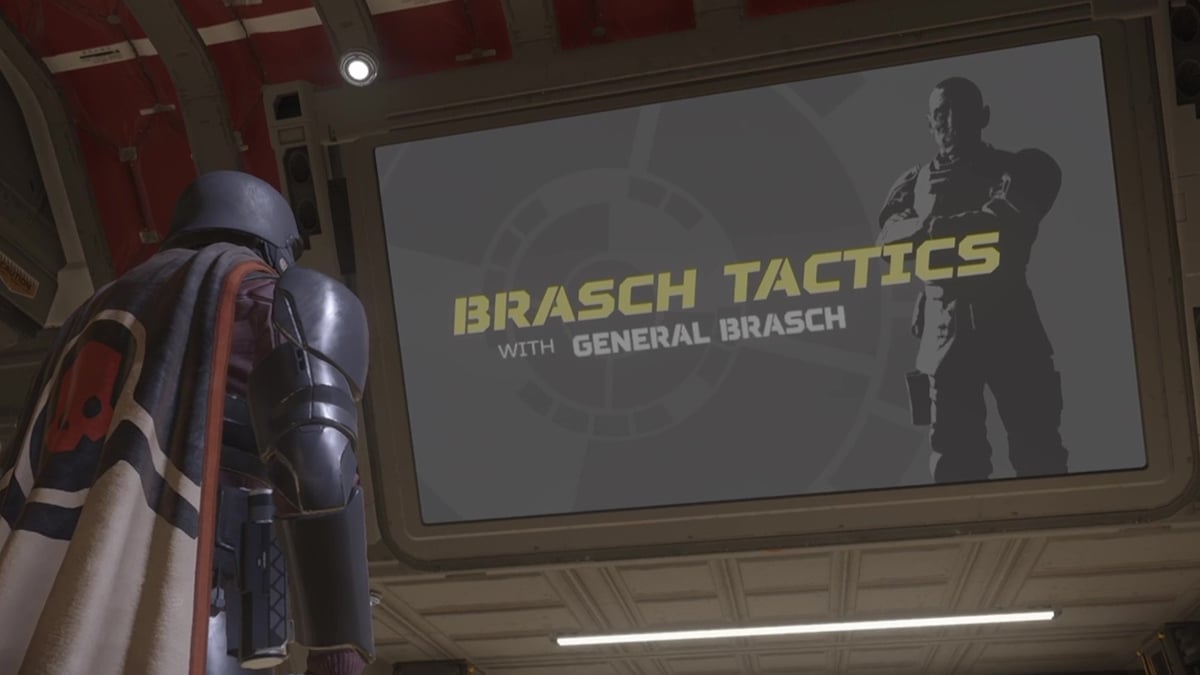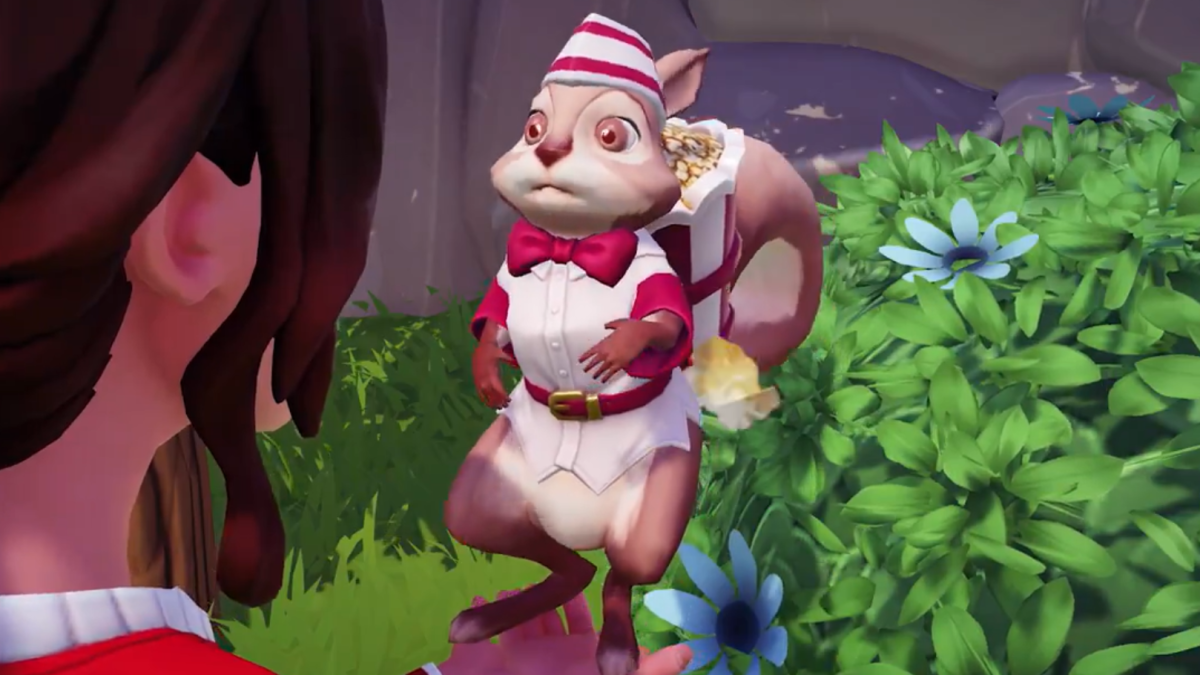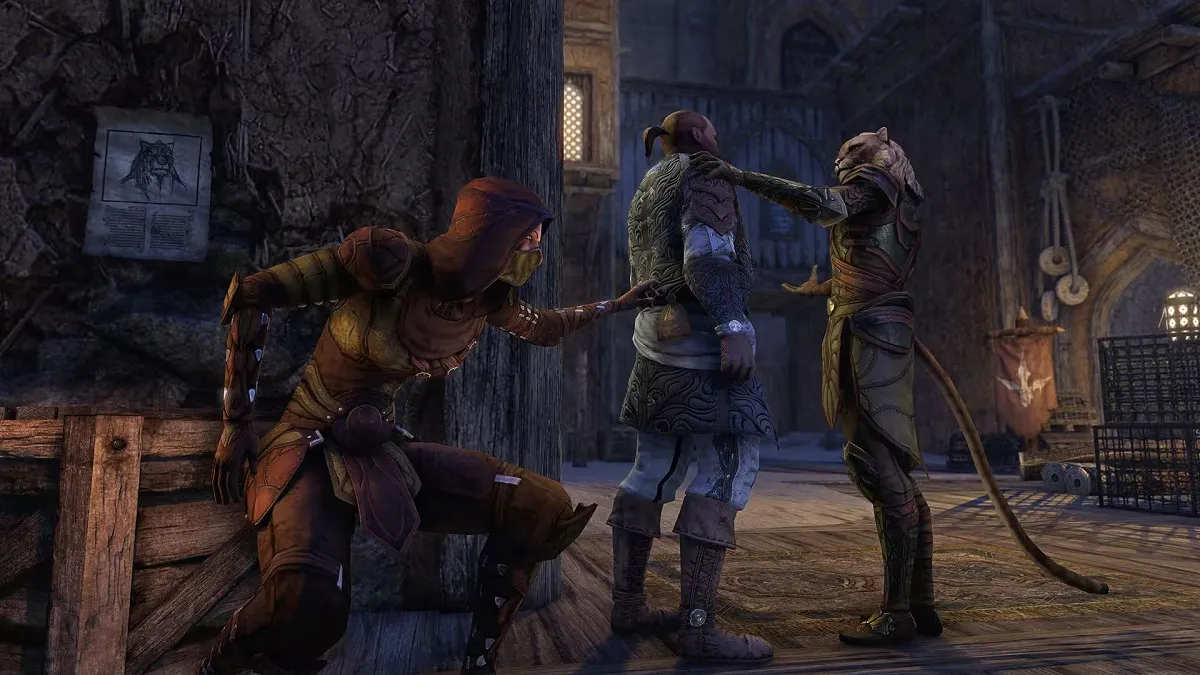As someone who cares deeply about literature and its legacy, I have been keeping tabs on Visceral Games’ upcoming Dante’s Inferno. As someone who also has a very public forum to express his ideas about literature and its relationship to Dante’s Inferno, this article is a long time coming: it’s been cooking since I read Jim’s pleasant invective on the subject almost six months ago.
The crux of Jim’s argument is that publisher EA and Visceral are under no obligation to Dante, his work, or those who love it, and that they should be free to take the artistic liberties they need to make a fun game. For the most part, I totally agree with him. The last game to follow the Inferno word for word was Denton Design’s Dante’s Inferno for the Commodore 64 in 1986; by all accounts, it was dogshit.
Jim eventually comes to the conclusion that we bookworms should just lighten up, and that 2009’s Dante’s Inferno should somehow be immune to criticism. I’m not sure when the game became off-limits, but I prefer to hold my games to the highest standards possible, even literary ones.
Before we go any further, I should clarify that I’m not out to vilify Visceral Games or rant about about how much better the poem is than the game. On the contrary: instead of writing off Dante’s Inferno as a knock-off God of War or ridiculing English nerds for their devotion to the literary canon, taking a good hard look at what Visceral have set out to do will provide insight into the core of contemporary games design philosophy and Electronic Arts as a publisher in general.

If I’m going to argue that Dante’s Inferno fails as a literary adaptation (and it does — which is, of course, different than being a failure as a game), I’m going to have to establish what makes a successful one. To do that, I turn to literary critic Jean Alter, writing about Jean Racine’s adaptations of Euripides’ plays: “Whatever liberty he took with ancient legend or ancient history, his characters were faithful to their originals in spirit and tone.”
Interestingly, Jim comes to the same conclusion:
I personally love to see fresh takes on old books or history; the crazier, the better. God of War is a good example, where traditional Greek myths have been radically altered. They’re not especially faithful to the old Greek ideas, but rather an updated look that only adds to the original by providing a new outlook. A Gorgon was not more snake than woman, but their representation in God of War is still refreshing and rather striking to behold, while retaining the general theme of the original template.
And yet, this is precisely where, despite their best efforts, Visceral Games fails to live up to their literary heritage. The environments and the atmosphere are all convincingly done, but the tone and focus of the narrative elements of the game don’t jive at all with the original Dante as a poet-character. The original Inferno is mostly dialogue, and involves lots of walking and talking. Instead of a war-hardened Crusader, the original protagonist is kind of a squeamish, bookish pansy — he has a bad habit of blacking out when something particularly violent or disgusting happens, depending on the seasoned Virgil to drag him along with his tail between his legs.
In an interesting take on Dante’s self-discovery, Visceral has promised that he will have to face his past sins, in the form of a bloody, cross-shaped tapestry that has been sewn into his chest. This mechanic is interesting to me because it highlights the distinction between a slavish re-creation and preserving the essential spirit of the original. I want to make it perfectly clear that a word-for-word adaptation isn’t what I’m interested in; rather, I’d like to see the spirit of Dante’s work preserved, and the tapestry might be the key to Visceral’s ability to do so.
The mechanic functions as a sort of flashback to some sin he’s committed, but executive producer Jonathan Knight seems a little fuzzy about the whole affair:
We really thought it would be kind of sort of crazy and twisted in a way, that he’s got the cross, the red cross, literally sewn right into the flesh of his chest. And it is a tapestry, it’s got little classic medieval tapestry-style scenes in it. And, you know, I don’t think he even quite knows why he’s doing it, but he’s sewing these scenes, which as we’ll learn in the game, are literally scenes from his past, and each little scene is representative of, shall we say, a poor choice that he made.
Knight’s explanation doesn’t exactly inspire confidence, and this lack of narrative focus (is it about Beatrice, or Dante’s sins?) could easily derail any hope that this interesting tapestry mechanic could somehow solve some of Dante’s Inferno‘s literary problems.
The shift from skittish to self-mutilating soldier is more significant than Visceral simply fudging the character in order to make him fit into some sort of narrative context: it represents, and is indicative of an innate and crucial divide between art and entertainment, narrative and gameplay, that the games industry as a whole has yet to bridge.

Simply put, the Inferno (and the Commedia as a whole) isn’t meant to be entertaining. It’s a philosophical, political, and theological tour de force; it’s a fantastic piece of poetic artistry and a bold step towards serious literature in the lingua franca. The Divine Comedy was designed to save souls, to save Florence from political schism, and to lampoon anyone who wasn’t living up to Dante’s civic and religious ideals. However, this type of didactic and self-reflexive narrative doesn’t lend itself particularly well to videogames (at least not yet).
Most of the videogames we play, and certainly most of the ones that sell well, boil down to a central, violent idiom: games (and narratives in general) cannot exist without conflict. Most videogame conflicts are external — me versus you. However, Dante’s conflict is internalized, a journey of self-discovery and self-salvation. Prose and poetry are great ways to communicate internalized ideas, but I don’t want to read Visceral’s version of the Inferno (or have a cut scene read it to me) — I have a copy of it on my bookshelf — I want to play it, and I want it to be good. And that’s the gap that games, as a medium and as an industry, haven’t managed to cross.
Games are entertaining, and emergent gameplay can create an incredible range of narrative, but they haven’t found a way to tackle internalized conflict with any sort of success. The gameplay mechanics we have don’t support that type of introverted communication: we haven’t developed the right tools to do so yet. The shift from Dante’s Inferno to Visceral’s Dante’s Inferno isn’t unique in that respect, it’s just that the literary adaptation makes those narrative challenges all the more obvious.
In contrast, games like God of War and Rise of the Argonauts are successful adaptations because they take source material designed as entertainment and simply adapt it to a new type of entertainment. The externalized conflicts central to Greek mythology are preserved and simply realized in a different way.
At the very core of Visceral’s adaptation is a sea change from theological discourse to pure entertainment, and the result is ideological dissonance: Dante’s Inferno communicates a certain set of ideas, but Visceral’s game, by the very fact that it’s a game, communicates another. How can Visceral call it an adaptation if the core message is so different?
By envisioning Dante as a soldier instead of a poet, however, Visceral has done more than just flub his character; they flubbed something far more elemental and critical — the nature of the work itself. It’s not entirely their fault — it’s a limitation inherent to the medium — but it illustrates the barriers that game developers face today. The only games that successfully marry internal struggle with external gameplay tropes are artgames like Jason Rohrer’s Passage or Anthony’s Runner. By not putting Dante’s internal struggles on display (and by separating him from the theological and civic aspects of his character), Visceral have amputated all the things that make the Inferno what it is and deleted something essential to its character, and the end result bears little resemblance to its namesake in any significant way.
At this point, I think it’s clear that this Inferno is no longer Dante’s: it’s Visceral’s. It’s new enough in spirit and tone that producer Jonathan Knight and his team should stand up and say, “This is what we created, with only a little help from Dante. This is Visceral’s Inferno.”

That said, it’ll probably still be a very good game (Visceral’s last game, Dead Space, received all sorts of critical acclaim), but it’s a game that has little to do with The Divine Comedy and fails at the only criteria that adaptations of any kind have to meet: “retaining the general theme of the template,” as Jim put it.
This, of course, raises an issue: if it’s almost impossible to make a game based on the Infeno, it seems that Visceral would have been better off taking its admittedly cool-looking play mechanics and plunking them into some other narrative framework that would better suit their needs. Visceral could even keep the faux-Christian theme — games like Bayonetta, Darksiders, and Baroque have all used it to great effect — without falling into the types of narrative pitfalls I outlined above. So why not go that route?
Well, because it’d be harder to market that way. Let’s be honest, here: Visceral (and by extension, its parent company, Electronic Arts) doesn’t owe jack shit to Dante, or literature, or to me. The only people holding them accountable are their shareholders, and Dante’s Inferno is a marketing wet dream.
Somewhere in the collective Occidental subconscious, we all instinctively know that Real Cool Shit is going to happen if you ever hear the word Dante. Even if you don’t know what it is, you’ve heard of Dante: American pop culture is rife with references to it, and games like Devil May Cry (the protagonists are named Dante and Virgil) make it explicitly clear that Dante should be associated with Real Cool Shit.
On a larger scale, Dante’s Inferno falls in line with what seems to be EA’s strategy for 2009. Both Dante’s Inferno and the Double Fine-developed Brütal Legend have built-in audiences, a fact that publisher EA is using to its advantage: Dante’s Inferno because we instinctively associate it with Real Cool Shit, and Brütal Legend because it features Jack Black. EA is successfully toeing the line between new IPs and innovation and keeping their bottom line in the black, effectively allowing them to say, “We’re bringing out successful new intellectual properties,” while avoiding Mirror’s Edge‘s underwhelming sales. If Dante’s Inferno‘s literary shortcomings expose some of the problems facing game design, then its very existence sheds light on EA’s new business model.

I should reiterate here that I’m not out to lambast Visceral for its lack of literary fidelity. On the contrary, the environments and much of the dialogue have been lifted straight from the poem, and I really like to believe that Visceral are doing the best they can with the project. Moreover, I should once again stress that I don’t necessarily want a word-for-word translation — the game looks great as it is, and I don’t fault Visceral one bit for their approach. It’s just too bad that the games industry has literally designed itself into a corner and has limited the medium’s capabilities to simple violence.
As a gamer, I’m looking forward to Dante’s Inferno because it looks like fun. As someone who wishes that gaming, as a medium for communication and entertainment, could break out of its shell, I have to admit I’m disappointed that games like Dante’s Inferno have to fall back on traditional and played-out narrative structures and gameplay tropes — male power fantasies are getting a little old. Dante’s Inferno may represent Electronic Arts’ dedication to supporting new innovation (hell, that Visceral even tried to tackle the Divine Comedy should warrant an ‘A’ for effort), but juxtaposing it against its namesake casts contemporary game design in sharp relief — we’ve got a hell of a long way to go.




